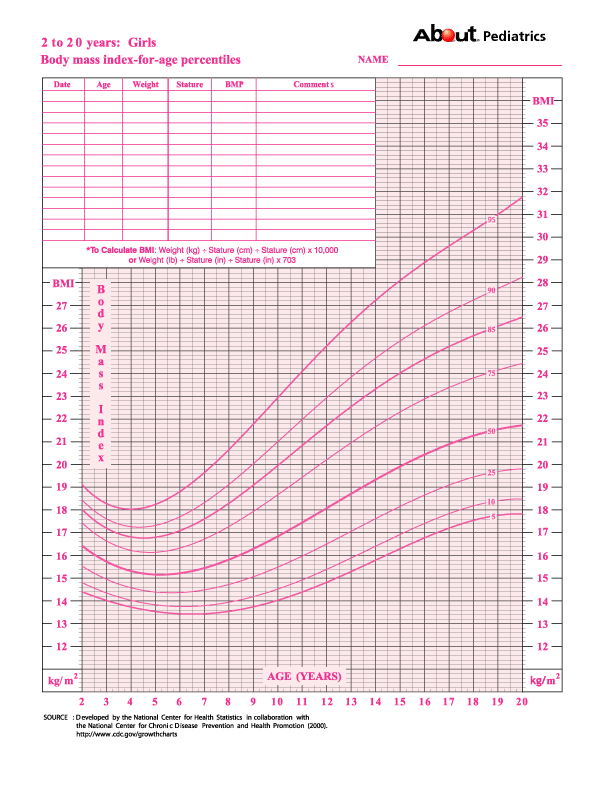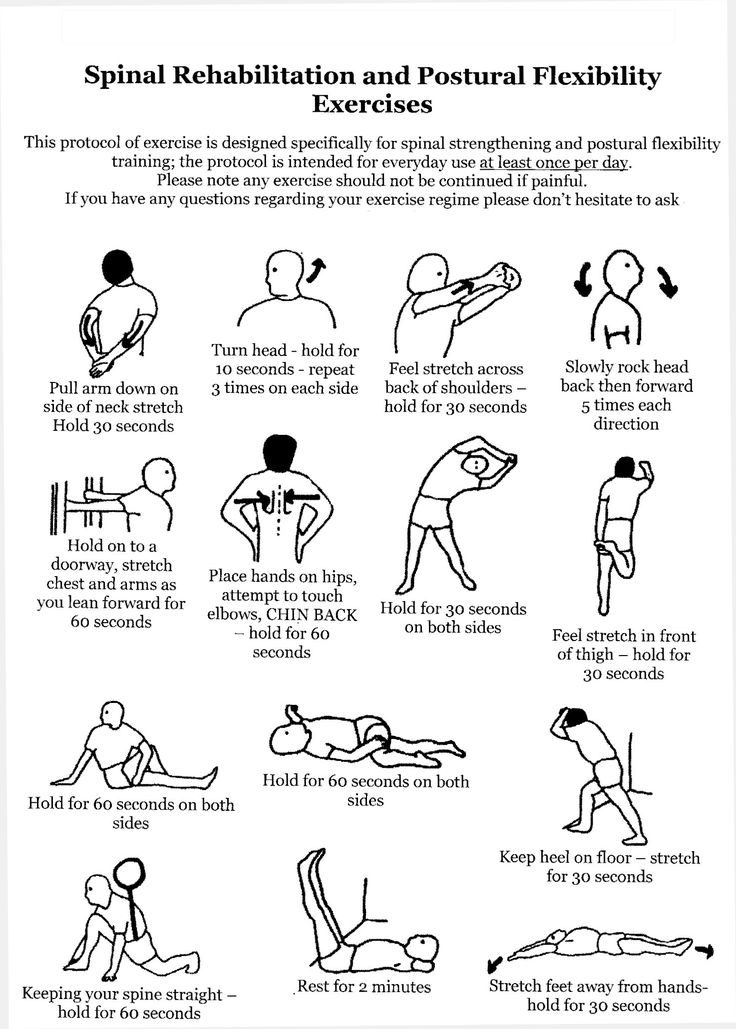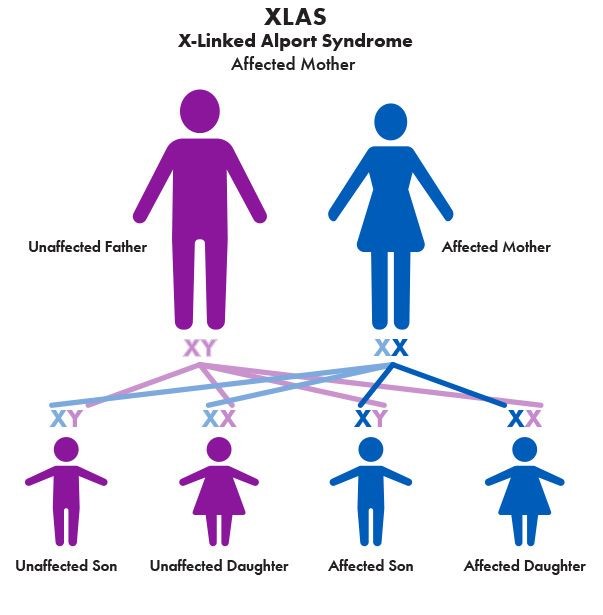Is pregnancy brain a real thing
Pregnancy Brain: Myth or Reality?
Relax, pregnancy does not change your brain. But it may affect how mentally sharp you feel.
Written by Denise Mann
Reviewed by Traci C. Johnson, MD on September 03, 2014
You may have heard about little bouts of forgetfulness during pregnancy. It's sometimes called momnesia or sometimes "pregnancy brain." At least one Australian studyhas cast doubt on whether there is such a thing as pregnancy brain.
But what if it's real? What can you do about it while you're pregnant?
Pregnancy Brain Is Real, but...
Pregnancy does not change a woman's brain even though some women don't feel as sharp as usual when they're pregnant.
Helen Christensen, PhD, of The Australian National University, says, "If you read pregnancy manuals and listen to pregnant mothers -- yes, there is such a thing as pregnancy brain or momnesia. And there is also evidence from research showing deficits in memory."
But, she adds, "the evidence from our study shows that the capacity of the brain is unaltered in pregnancy. "
What Causes “Momnesia?”
It’s 100% normal to have memory lapses or be forgetful when you’re busy, stressed, or short on sleep, Christenson says.
Jane Martin, MD, director of the Neuropsychological Testing and Evaluation Center at New York's Mount Sinai Medical Center, agrees. "When you are not getting enough sleep and are multitasking, nobody's memory is good," she says. "You are not cognitively sharp when you haven't slept well."
Surging hormone levels and new priorities may help explain why pregnancy brain happens.
"There is 15 to 40 times more progesterone and estrogen marinating the brain during pregnancy," Louann Brizendine, MD, director of the Women's Mood and Hormone Clinic at the University of California, San Francisco, says. "And these hormones affect all kinds of neurons in the brain. By the time the woman delivers, there are huge surges of oxytocin that cause the uterus to contract and the body to produce milk -- and they also affect the brain circuits. "
"
Pregnancy also shuffles what gets your attention. Your IQ doesn't change, but your priorities do.
"You only have so many shelves in your brain, so the top three are filled with baby stuff," Brizendine says.
Hormones may also affect spatial memory -- which includes remembering where things are -- in pregnant women and new moms, a British study shows.
What Pregnancy Brain Feels Like
Pregnancy brain is "the feeling of walking into a room, going after something, and not remembering what you went for about five to 10 times a day," Brizendine says.
There may also be an evolutionary aspect to it. Women’s health expert Donnica Moore, MD, says, "It has been postulated that, from an evolutionary standpoint, this memory impairment may be helpful so that women will forget about other stuff and focus on caring for the child."
Many pregnant women and new moms spend a lot of time thinking about the changes that having a baby will bring or taking care of their newborn.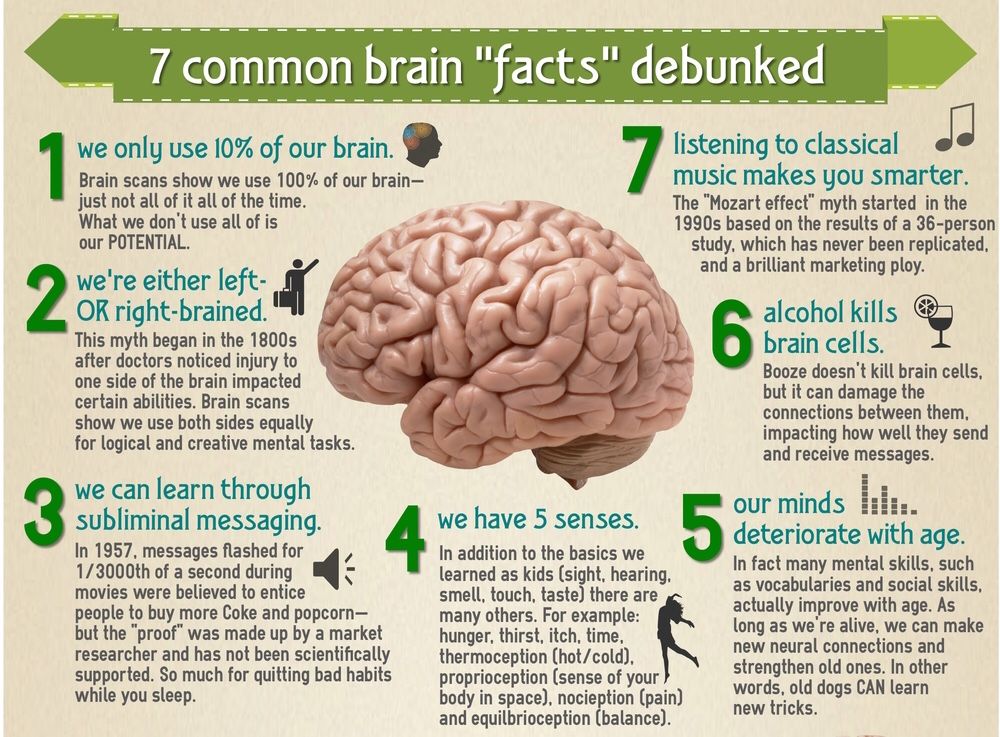 As a result, their short-term memory may suffer.
As a result, their short-term memory may suffer.
How to Help Your Memory
Moore says if you feel you're not as sharp as usual, that should be "your first tip-off that, when you are preparing to have a baby, you need to simplify other areas of your life because life is about to get a lot more complicated."
After the baby arrives, sleep deprivation is clearly a contributing factor. Brizendine says, "Women accumulate up to 700 hours of sleep debt in the first year after having a baby, and that causes the brain not to be at its best for things other than caring for the baby."
So what can you do?
Write things down. Ob-gyn Geeta Sharma, MD, of New York-Presbyterian Hospital/Weill Cornell Medical Center, says, "Most patients comment, 'I have to write my questions down or I will forget,' and then mention that they are more forgetful in general."
Jotting things down, whether on a grocery list or a list of questions to ask your obstetrician, helps. "Make lists, use a day planner, and keep your sense of humor," Moore says.
Get more sleep. This may be tricky for new parents. But it can make a real difference. "Most moms need more deep sleep, and within a week of getting better sleep, some of this momnesia stuff goes away," Brizendine says.
"If your memory problems are getting in the way of taking safety precautions or if you find yourself doing things like forgetting to put your child in the car seat, worry," Brizendine says. "Otherwise, it's normal."
Is Pregnancy Brain Real?
You expect all the physical changes that occur in pregnancy: a burgeoning belly, swollen calves, and — if you’re really lucky — pregnancy hemorrhoids. But in addition to these telltale transformations, there are mental shifts and actual physiological brain alterations that happen, too.
If you’re feeling forgetful, absentminded, or just plain out of it, you’re not imagining things. It’s not regular day-to-day distraction at play — “pregnancy brain” is a real thing.
And while it can provide some humor in the moment (like, when you forget your date of birth at a prenatal appointment or discover you’ve shoved the car keys in the freezer — again!), it can also be frustrating and worrisome.
Want to understand the science driving this silliness and get some tips to help lift the fog? We’ve got your back — and your brain — covered.
During pregnancy and beyond, you may find yourself struggling to remember details, focus on tasks, or give your undivided attention to just about anything. This is casually referred to as “pregnancy brain” or “mommy brain.”
Pregnancy brain may begin as early as the first trimester of pregnancy, as this is when your body gets a major surge of hormones. Insomnia, a common affliction in early pregnancy, can exasperate this state of mental mushiness, too.
If you’re hoping the clouds will clear upon baby’s arrival, you’re in for a rude awakening. Hormones will continue to fluctuate postpartum and, of course, the sleep deprivation is just getting started.
You may feel more like yourself around 6 months after birth, if your hormone levels regulate, or it could last well into your child’s toddler years. Hold on to your thinking cap, it’s going to be a wild ride!
An expecting parent will experience several physical and mental changes that can lead to pregnancy brain.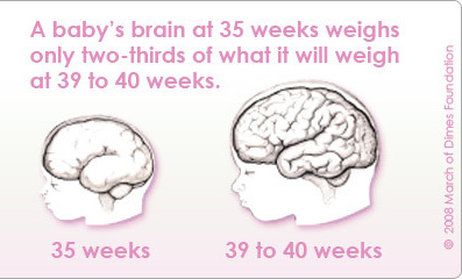 But, while anecdotal evidence of temporary cognitive decline is strong, the research has yielded mixed results.
But, while anecdotal evidence of temporary cognitive decline is strong, the research has yielded mixed results.
A 2014 study found that while pregnant women and new moms reported more memory loss and forgetfulness than a control group of nonpregnant women, actual neuropsychological measurements showed little to no difference in the brain function of the two groups.
Still, other research — and a hearty dose of common sense — can pinpoint a few key contributors. At any given time, the effects of pregnancy brain are likely caused by one or more of these factors.
Hormonal changes
Ah, hormones — the veritable scapegoat of pregnancy problems. Experiencing an acne flare-up? Having mood swings? Sore breasts? Hormones, hormones, hormones.
It comes as no surprise, of course, that hormones are, indeed, a major player in all sorts of pregnancy-related afflictions.
Your body experiences a major surge of various hormones, such as progesterone and estrogen, during pregnancy — and some doctors and scientists believe that this dramatic spike could affect your ability to think clearly, recall easily, and focus mindfully.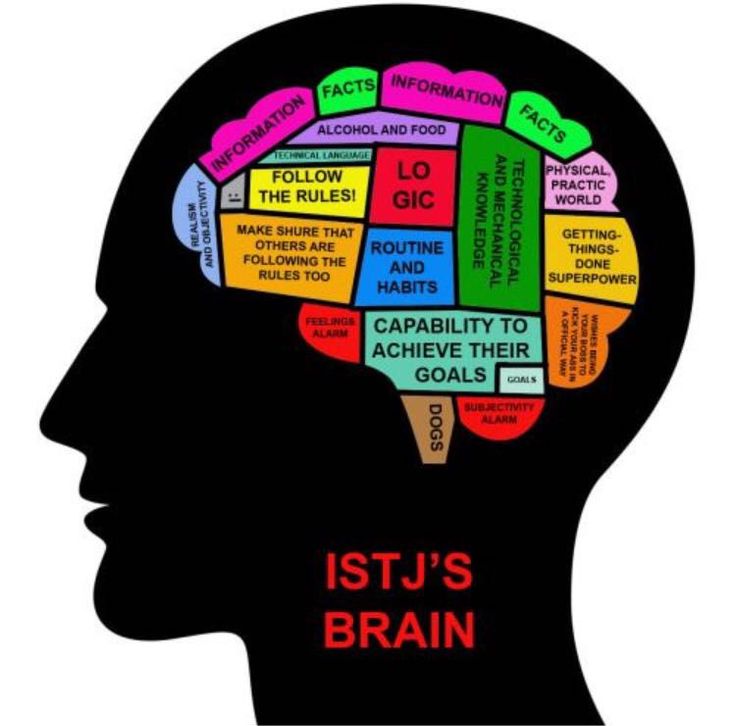
One 2014 study found that pregnant women in their second trimester and beyond scored noticeably lower than non-pregnant women on Spatial Recognition Memory (SRM) tests. In other words, they had trouble remembering locations and spacial relations between different objects.
So if you can’t find your cell phone, it may not be your fault. Blame it on the hormones — and give yourself a call (assuming you can remember your own phone number).
Sleep deprivation
At some point during pregnancy, most women will experience some degree of insomnia. Many moms-to-be will suffer from extreme exhaustion in the first trimester, and may never feel fully rested.
Plus, early nagging symptoms such as heartburn, leg cramps, and nausea may keep a woman from getting the slumber she so desperately needs.
Other expecting mamas will have a much harder time sleeping soundly later in pregnancy. Finding a comfortable position is a nearly impossible feat, aches and pains may be incessant, and you could be getting up to pee every half an hour.
Suffice to say, quality sleep is limited during those 9 tiresome months, and it is only the beginning of this exhaustive roller coaster.
Sleep deprivation can cause you to feel completely out of sorts. It can affect your mood and memory. When you sleep, your brain makes critical connections that help you process information — so losing those all-important Zzz’s could be why you’re also losing your train of thought.
Stress and anxiety
It’s safe to say that you have a lot weighing on your mind when you’re pregnant. You’re about to bring new life into the world — it’s heavy and exciting and totally overwhelming all at once.
You have preparations to make, appointments to keep, and tasks to accomplish. To top it off, you might be dealing with the very real and legitimate fear of childbirth.
So, yes, you have your fair share (and then some) on your proverbial plate, clogging up your mental space. It’s no surprise you may be having difficulty focusing.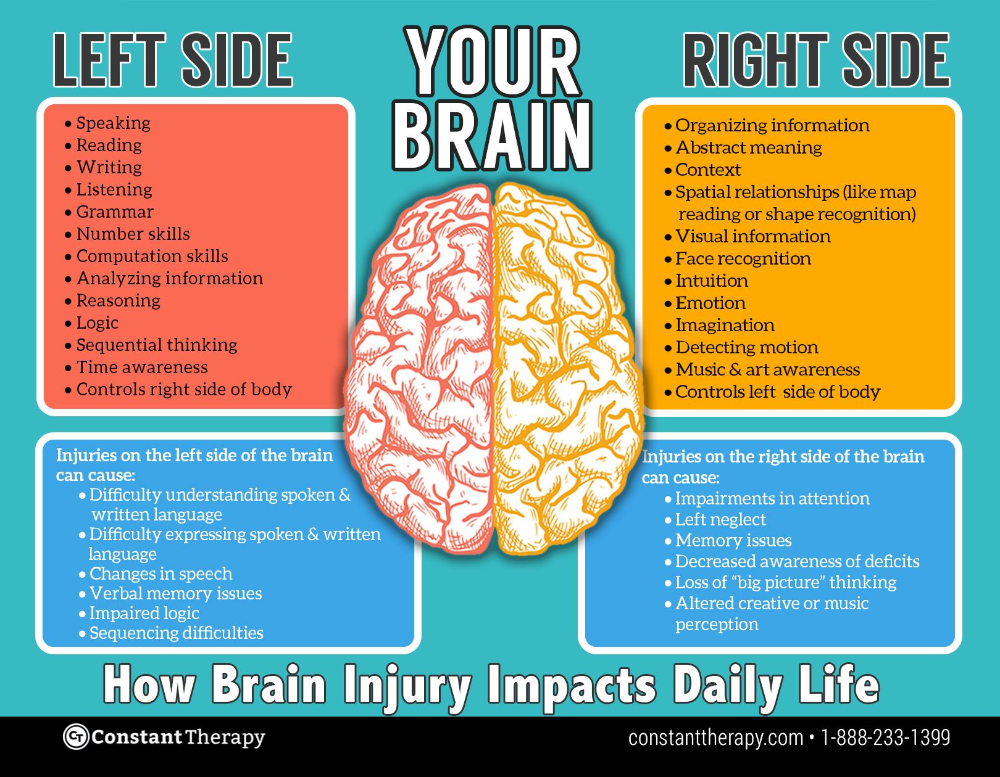
Physical changes in the brain
As it turns out, there may be even more happening on a cellular level that’s further fueling pregnancy brain.
A 2016 study determined that there are undeniable physiological changes that occur in the structure of all women’s brains during pregnancy.
Scans showed that pregnant women will categorically experience a significant decrease in gray matter volume in areas of the brain that help with social cognition. These changes were also found to occur in parts of the brain that foster relationship building.
This could be the brain’s way of clearing space to make room for maternal attachment. So, while you may not be able to recall if you brushed your teeth in the morning, you will be ready to snuggle down like a mama bear.
Interestingly, follow-up scans showed that these volume changes can last for 2 years or more, meaning some aspects of pregnancy brain might stick around through your child’s toddler years.
You don’t need to throw in the towel and accept your forgetful fate just yet.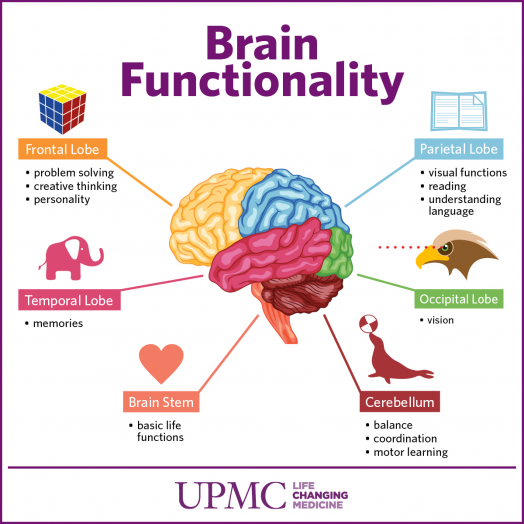 There are some brain-boosting steps you can take to sharpen your mental acuity.
There are some brain-boosting steps you can take to sharpen your mental acuity.
Get sleep
Sleep can be elusive in pregnancy and completely evasive in those early postpartum weeks and months.
Taking a few measures to try to quiet your mind and relax your body can help cultivate a more restful environment. Establish an evening routine, turn off your cell phone, and do some breathing exercises.
During sleep, your brain can form important connections that help encourage cognitive function — so do what you can to prioritize rest.
When all else fails, a cat nap can help. Twenty minutes of shut-eye will do the trick. A longer nap may sound tempting, but can leave you feeling groggy, as you will transition into a deeper stage of sleep — so keep the midday snoozes short and sweet.
Eat well
You may have intense cravings and an insatiable appetite during pregnancy, and we support your need to feed, but we also suggest adding a few key ingredients to your next meal.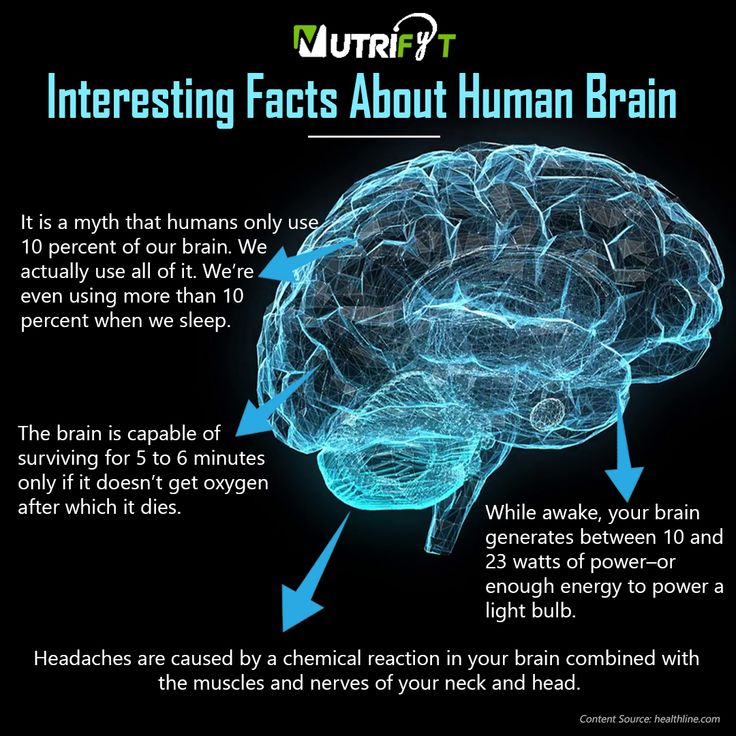
Certain foods high in antioxidants and vitamins have been proven to help with brain function. Here are a few to add to your upcoming grocery list:
- Omega-3 fatty acids. Salmon and other fatty fish are loaded with DHA and omega-3 fatty acids that help to build brain cells needed for cognition and memory.
- Blueberries. Rich in color and flavor, blueberries have antioxidants that fight brain-fogging inflammation and help boost communication between brain cells.
- Eggs. Egg yolks have a high concentration of choline, a nutrient that makes acetylcholine, which helps stabilize mood and improve memory.
- Spinach. Leafy green veggies are chock-full of vitamin K, folate, and other brain-empowering vitamins and minerals that can help fuel your ability to think and recall.
Hydrate
Drinking water is always vital, but it is arguably even more important during pregnancy and throughout your postpartum recovery — especially if you’re breastfeeding.
Your brain needs water to function properly. Even mild dehydration can have adverse effects on your ability to concentrate and totally zap your energy level — so drink up to perk up.
Set reminders
If you’re having trouble remembering things or maintaining focus, set yourself up for success by employing a few simple mind-triggering tactics.
There’s no need to tie a string around your swollen finger — just leave yourself sticky notes with simple reminders and friendly FYIs. A daily agenda planner can help you feel less scatterbrained and more organized. Use your smartphone — set alarms and fill in your calendar.
Play brain-boosting games
Just like your muscles need exercise to reach peak performance, your brain will benefit from a mental workout, too. Crossword puzzles, Sudoku, and other solo games will get your creaky gears going. Apps like Lumosity, Peak, and Elevate also offer clever activities to engage your mind.
Show yourself kindness
You have a lot going on physically, mentally, and emotionally during pregnancy and after a little one is born.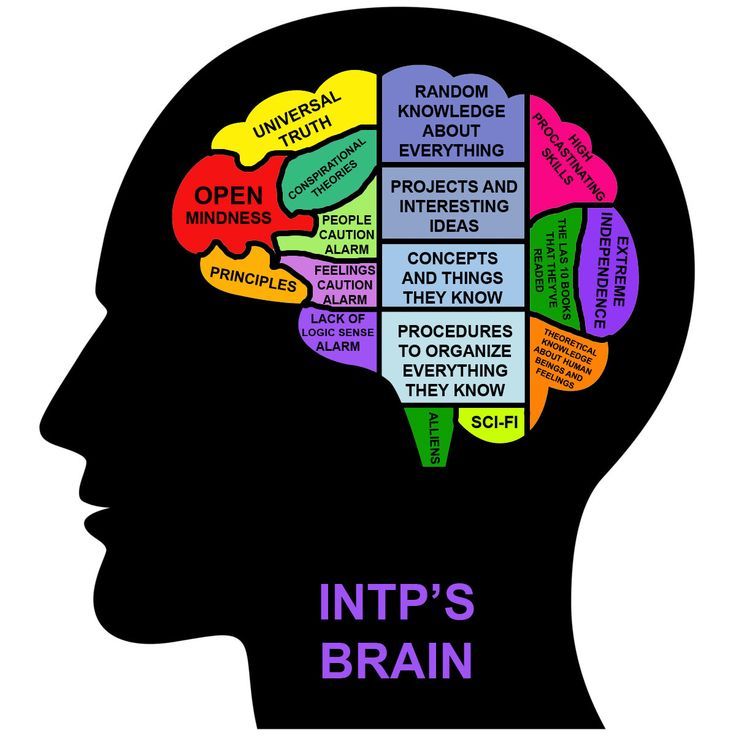 Don’t beat yourself up if something slips your mind or you can’t seem to snap out of it. Learn to forgive when you forget, and try to find humor in the situation.
Don’t beat yourself up if something slips your mind or you can’t seem to snap out of it. Learn to forgive when you forget, and try to find humor in the situation.
Pregnancy brain could have you feeling less than sharp. You might make a few mindless mistakes or temporarily lose your ability to think clearly, but, in time and with patience (and sleep), you will feel like your quick-witted self again.
In the meantime, recognize that there are real mental, physical, and physiological reasons why this is happening. It may even be your brain’s way of helping you transition into the all-consuming, totally overwhelming, and amazingly wonderful world of motherhood. And that is something worth remembering.
ICSI Clinic ≋ 31 Surprising Things You May Not Know About Pregnancy
It's no secret that pregnancy changes the human body. When a woman is pregnant, her body must go through many adjustments in order for her and the baby to safely survive the next nine months (or so).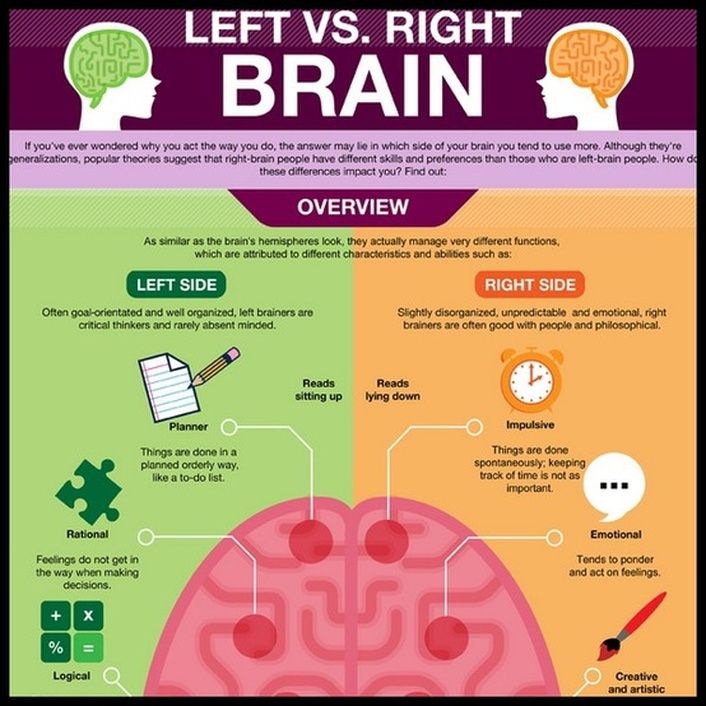
Her organs will have to move to make room for the baby, but there are many other subtle changes that are not obvious at first glance.
The fetus also undergoes significant changes while growing in the womb and may be more aware of what is going on in the outside world than you think.
Here are 31 amazing facts about pregnancy and some explanations of why the human body has changed so much during this time.
1. The uterus becomes much larger
Before pregnancy, a woman's uterus is usually the size of an orange. By the third trimester, it can be the size of a watermelon. In fact, it can increase 500 times during pregnancy.[/tds_note]
2. The longest pregnancy in history was 375 days
The longest recorded time someone was pregnant is 375 days. As a rule, pregnancy lasts about 280 days, so Penny Diana Hunter's baby was almost a hundred days late in 1945.
Longer pregnancies are more common than you might think.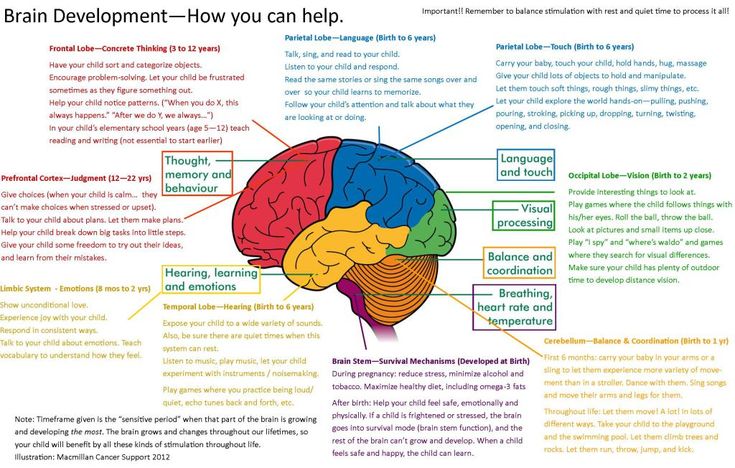 Many women report being pregnant for 10 or 11 months instead of the usual nine.
Many women report being pregnant for 10 or 11 months instead of the usual nine.
3. And the shortest was 21 weeks four days
The earliest premature baby survived in the uterus for only 21 weeks and four days. A child who started attending preschool last year obviously has no health or developmental problems due to early birth.
4. Pregnant women's blood volume increases by 40-50%
During pregnancy, blood volume increases by 50% to provide enough oxygenated blood for the fetus.
5. Your heart gets bigger while you're pregnant
To help pump all that extra blood around your body, your heart needs to get bigger.
6. Happy Feet
Many women also report that their legs got bigger during pregnancy - a whole size bigger. The ankles and feet may also swell.
7. Your voice can change during pregnancy
Not surprisingly, with all the hormones surging around the pregnant body, there will be some changes. Another thing is that the voice can change. Rising levels of estrogen and progesterone can cause swelling of the vocal folds, meaning that some of the higher notes are lost and lower ones may appear.
Another thing is that the voice can change. Rising levels of estrogen and progesterone can cause swelling of the vocal folds, meaning that some of the higher notes are lost and lower ones may appear.
8. Babies can hear their mother's voice from inside the womb
At about 18 weeks, the fetus is able to hear sounds. By 25–26 weeks, it is more responsive to noises and responds in the womb.
9. Some pregnant women develop diabetes
Gestational diabetes is when a pregnant woman's blood sugar levels are too high and the pancreas cannot supply enough insulin. Usually disappears after childbirth.
10. Your joints loosen during pregnancy
During pregnancy, the body produces the hormone relaxin, which softens the ligaments, the tissues that connect your joints. This will help make the pelvis more flexible during childbirth.
11. Your sense of smell may change
Pregnant women usually experience an increased sense of smell during the first trimester, which may be a sign that you are pregnant.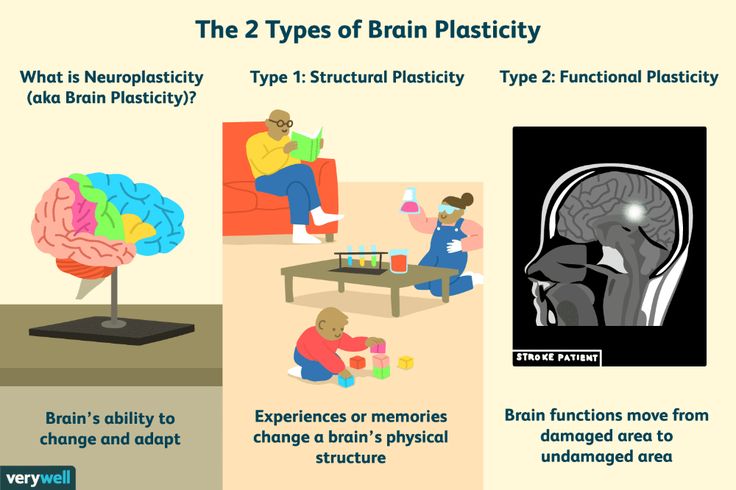 This could be an evolutionary way to help pregnant women avoid unsafe foods.
This could be an evolutionary way to help pregnant women avoid unsafe foods.
12. Some skin changes
When a pregnant woman's body changes, it may develop stretch marks that are usually paler than normal skin. Women can also get melasma, which causes dark spots on the face. The line down the belly, called linea nigrea, also darkens.
The vagina can also change color. Some women report turning purple or bluish, which is known as Chadwick's sign. Approximately 10% of women also develop blue varicose veins, but they should disappear within a few weeks after delivery.
13. Some genes mean you can't get pregnant
After a year of trying to conceive, the couple was technically infertile - though that doesn't mean they'll never have a baby.
A chromosomal disorder called Turner syndrome affects some women. This means they only have one X chromosome, not two, so it cannot reproduce.
A common cause of male fertility is a CFTR gene mutation that causes congenital bilateral absence of Vas Deferens (CBAVD). This means that sperm cannot leave the testicles on their own, but fortunately, treatment can help men have children.
This means that sperm cannot leave the testicles on their own, but fortunately, treatment can help men have children.
14. Your blood type can also be affected
In 2010, a study showed that women with type O blood may have a harder time getting pregnant than people with different blood types. People with type A blood were found to be more fertile.
15. Blood can also be dangerous for the baby
During testing, pregnant women are offered a blood test. One of them determines whether they are "Rh positive" or "Rh negative." Positive people have a certain antigen on the surface of their blood cells, which can mean problems during pregnancy.
If a woman has a child with a man who is Rh-positive, the child may also have Rh-positive blood, even if he is Rh-negative. In this case, a woman can develop antibodies against Rh antigens. This is usually not a problem in the first pregnancy, but may cause problems in later ones.
16. Brain pregnancy can be a real thing
According to a study, about 80% of women have memory impairments. But it is not clear what could be causing this. It can be late nights, exhaustion and the stress of welcoming a new life into the world.
17. Babies can taste certain foods in the womb
Strong flavors such as garlic can pass through the amniotic fluid so the baby can "taste" them. In fact, when pregnant mothers drank a lot of carrot juice for research, their babies were more likely to develop a taste for it.
18. More twins in the world are born in Central Africa
Benin in Central Africa has the highest number of twins in the country on average - 27.9per 1000 births.
19. Pregnant women can start lactating when they hear a baby crying
It doesn't have to be their own baby. It's all automatic.
20. Heartburn during pregnancy could mean you're expecting a baby with lots of hair.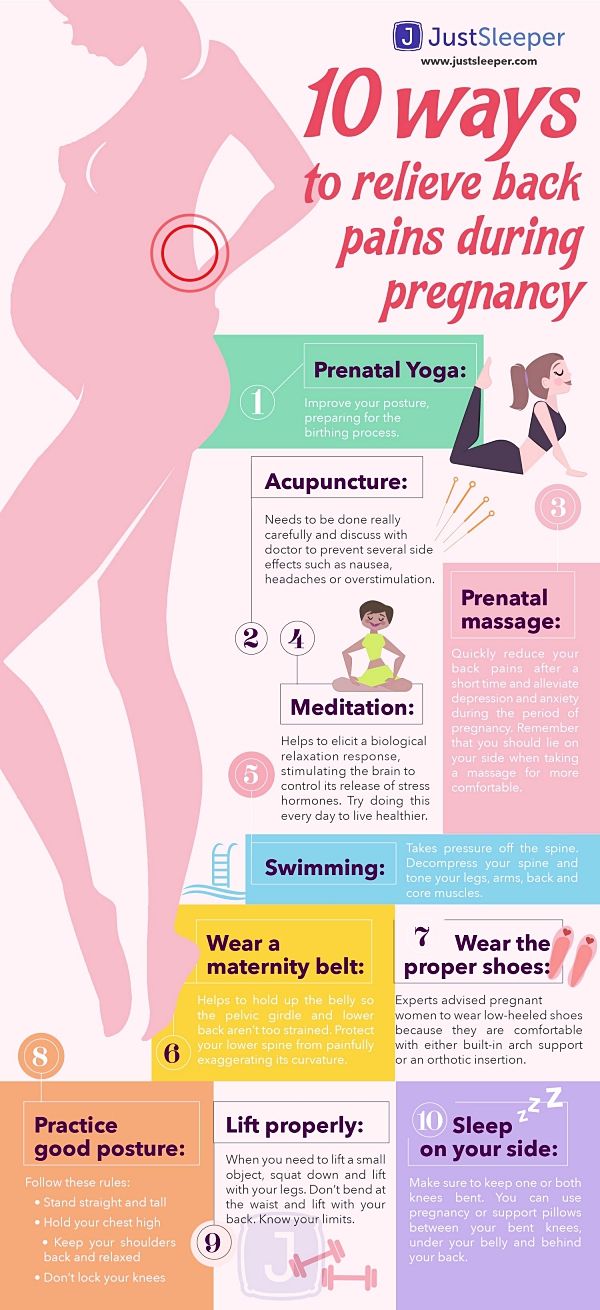 Rising levels of estrogen and progesterone can stimulate hair growth and also relax the esophagus, leading to acid reflux or heartburn.
Rising levels of estrogen and progesterone can stimulate hair growth and also relax the esophagus, leading to acid reflux or heartburn.
21. The maximum number of children born at once is eight
Six boys and two girls.
22. At the age of 30, a couple has 20% to conceive
But this percentage decreases to 5% by age 40.
23. Pregnant women produce more estrogen per day than non-pregnant women per year
In women, the placenta, an additional organ that produces hormones, grows during pregnancy. In general, a pregnant woman will produce more estrogen in a day than a non-pregnant woman in a year.
24. Babies can cry in the womb
Researchers discovered this by accident while studying pregnant women who smoked or used cocaine. When there was a sound near the pregnant woman, the surprise of the babies could be heard on the ultrasound when they heard it and opened their mouths at the same time.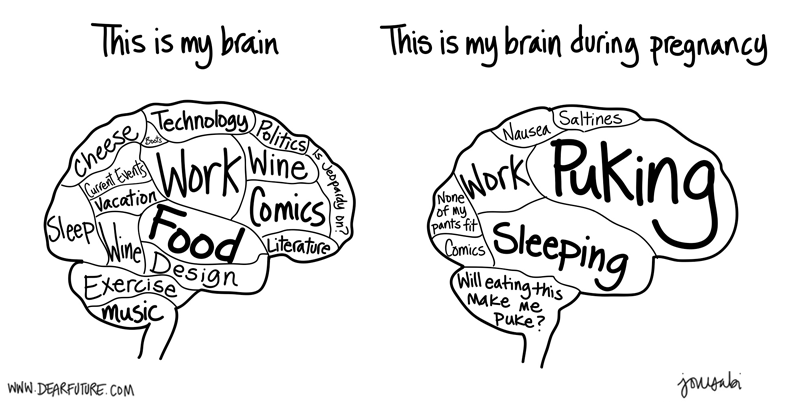
25. Gingivitis and bad breath can occur in mothers
The hormonal changes of pregnancy can make a woman's gums more receptive, which can lead to inflammation and bleeding - the so-called pregnancy gingivitis.
26. Reason for weird cravings
Hormonal changes can disrupt pregnant women's taste and smell receptors, causing them to crave strange foods. Cravings can also be a sign that mother and baby are lacking certain nutrients. For example, a craving for red meat may indicate an iron deficiency.
27. Your partner may experience some of the same symptoms.
This is called Couvade's syndrome, or sympathetic pregnancy. More research is needed to determine if she has psychological causes, according to the Mayo Clinic, but men report symptoms such as nausea, heartburn, abdominal pain, back pain, anxiety and depression.
28. Pregnant women often get thicker, shinier hair - but they also get more body hair
During pregnancy, hair can feel fuller and healthier because it can grow faster. But women can also grow hair on other parts of the body, such as the belly, face, and back.
But women can also grow hair on other parts of the body, such as the belly, face, and back.
29. Fetal stem cells can travel throughout the body, regenerating cells
A few years ago, researchers discovered fetal cells in a mother's brain. It turns out that fetal cells can migrate from the placenta to the mother's organs, which can help repair damaged tissues. Cells can also cause immune disorders.
30. During childbirth, the pelvic bone is separated
The pelvis is connected by a narrow section of cartilage and ligament, which can sometimes be separated during childbirth.
31. Pregnancy can cause carpal tunnel syndrome
Pregnant women may experience swelling in their hands due to the accumulation of fluid in the tissues. Sometimes this fluid can accumulate in the carpal tunnel, causing pressure on the nerves, resulting in tingling and numbness in the hands and fingers. According to the NHS, up to 60% of pregnant women may experience these symptoms.
Pregnancy changes a woman's brain for at least two years
Caption to photo,
During pregnancy, there is a fluctuation in the concentration of sex hormones helps a woman feel connected to her baby and prepare for motherhood.
A team of scientists analyzed changes in the brains of 25 women preparing to become mothers. Experts suggest that structural changes in the brain help women better respond to the needs of the baby. They note that a change in gray matter volume is observed during pregnancy, as well as in the first two years of motherhood.
According to the researchers, the magnitude of these changes can be compared to those that occur during adolescence.
However, scientists have not found evidence that pregnant women have impaired memory.
Many pregnant women complain of forgetfulness and excessive emotionality. It seems that there are reasons for this.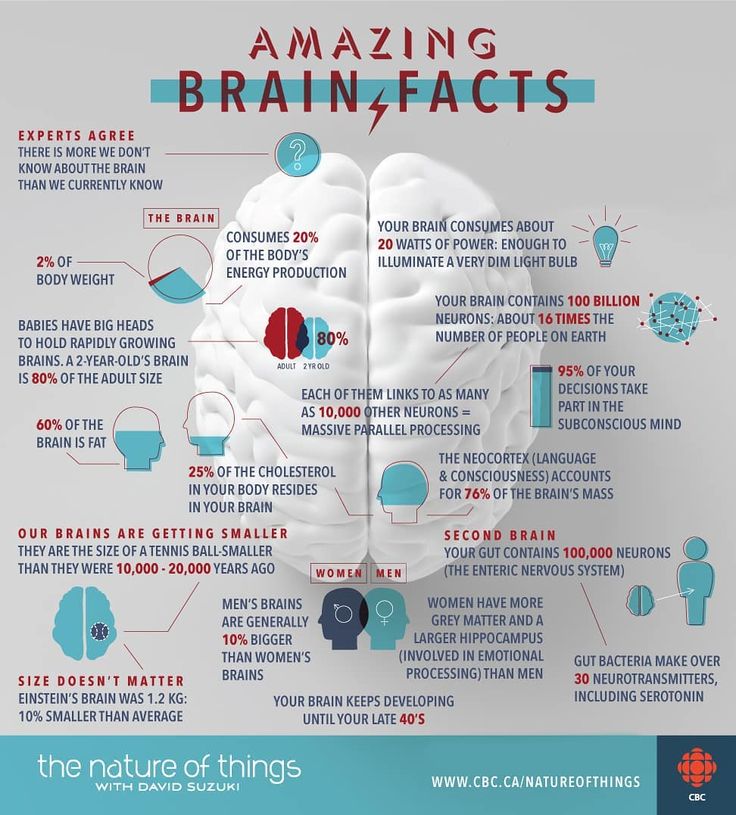
Hormone fluctuations
During pregnancy, the balance of sex hormones is disturbed, physical and physiological changes occur in the body, the researchers say.
A woman's body produces more estrogen in nine months than in a lifetime.
However, the effect of pregnancy on brain function has not been fully explored.
A team of scientists from the Independent University of Barcelona and the University of Leiden analyzed the brain changes of 25 women who were about to become mothers for the first time.
They had their first MRI a few weeks before the pregnancy, the second a few months after the birth, and the third two years later.
The study also included 19 new fathers, 17 childless men and 20 women who had never been pregnant.
Scientists tracked the decrease in gray matter volume in the brain regions of pregnant study participants responsible for social cognition and the ability to understand others.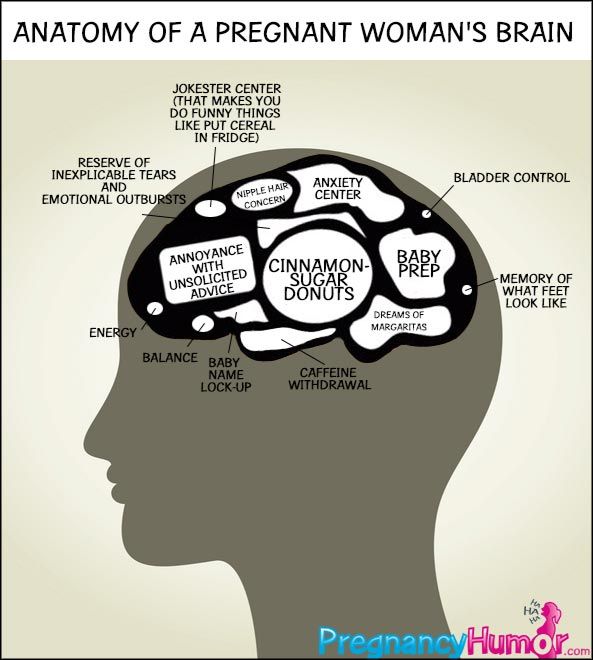
According to the researchers, these changes indicate that during pregnancy and some time after it, the bond between a woman and her child is significantly enhanced.
The author of the photo, UNIAN
Photo caption,These processes are of evolutionary origin, according to scientists. child.
With a simple comparison of images, a computer program could accurately determine the tomograms of women who recently became mothers.
Communication with baby
Pass the POSSIST
POCAST
SHO TS BULO
GOLD ISTORIA TIZHNIA, Yaku explain our magazines
VIPUSKIS
KITSISS IN THE PROSENTS OF THE CHILL other children - and monitored their brain activity.
When they saw their children, almost the same areas in the brain were activated, in which there was a decrease in volume during pregnancy.


